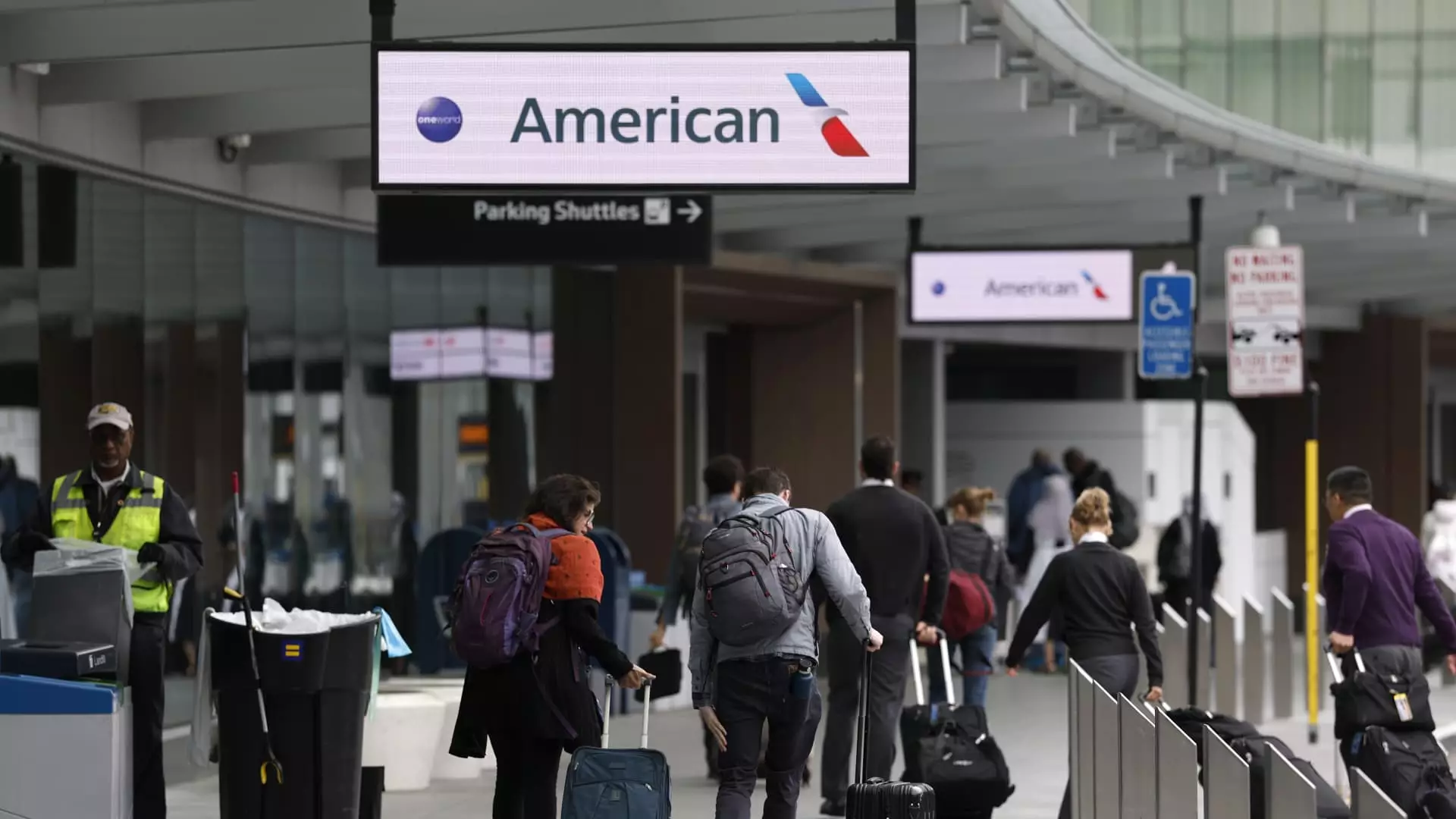In an unsettling turn of events, the airline industry is facing tumultuous winds as economic uncertainty looms over the horizon. The optimism painted by CEOs at the beginning of 2025 has dissipated, revealing a stark reality marked by lighter domestic travel demand. With an unsettling cocktail of unpredictable tariff policies and volatile markets, industry leaders expressed their dismay during recent earnings calls. American Airlines CEO Robert Isom poignantly summed up the situation, highlighting the reluctance of potential travelers to loosen their purse strings in unstable economic times. Such sentiments echo a broader concern that a recession may not only be brewing but may already be taking off.
Passenger reluctance may lead to unforeseen implications for airlines and their fiscal health. The inherent unpredictability within the U.S. economy has prompted major airlines to retract their previously optimistic financial outlooks for 2025. With Delta, Southwest, and American Airlines all bracing for a potential downturn, the once shimmering prospects for growth are clouded with speculation and fear. As the market appears to tighten, these carriers are questioning whether the summer vacation season will be as robust as anticipated—or if they’ll be left grappling with unsold seats and consequently plummeting prices.
Corporate Travel: The First Casualty of Economic Anxiety
If there’s one truism evident in the current climate, it’s that economic uncertainty directly saps corporate travel, a critical revenue stream for airlines. The traditional business traveler—a less price-sensitive demographic—has become increasingly cautious, echoing the broader anxieties felt by households across the nation. Conor Cunningham, a travel analyst, notes that as fear mounts, corporate travel is often the first to feel the pinch, signaling a staggering shift in the dynamics that have long propelled the industry.
Tesla’s approach to innovation may seem like a stark contrast, but the anecdote highlights a pivotal lesson: when the market spirals into uncertainty, consumers adjust their habits before anything else. Delta’s CEO Ed Bastian previously reported a 10% year-on-year growth in corporate travel early in 2025. However, such gains have since stagnated, a trend that could have drastic ramifications for the profitability of major airlines who rely on those unexpected last-minute bookings that fill planes and sustain revenues.
Fare Wars: The Dwindling Value of Air Travel
The specter of excess capacity looms large over the airline industry, compelling major carriers to re-evaluate their pricing strategies. With fewer travelers willing to commit to tickets, airlines are left with a painful surplus of empty seats. In a bid to fill those lies, they find themselves lowering ticket prices—airfares fell by 5.3% in March alone, causing a ripple effect across the entire sector. Alaska Airlines has even acknowledged that disappointing demand is likely to cast a shadow over their expected second-quarter earnings, leading them to act decisively by slashing prices.
What’s troubling, however, is that this isn’t just a momentary blip in the demand curve; it signifies a deeper malaise within the industry. There’s a sobering realization that the once-invincible airline market is vulnerable and susceptible to external factors that dampen consumer confidence. Though airlines do report that demand remains, it is not at the fever pitch they had hoped for.
A Fleeting Market: The Human Element Behind the Numbers
Despite the dark clouds gathering, hints of hope remain. Reports indicate that international travel for U.S.-based customers continues to hold strong, suggesting that when it comes to travel, not all sectors are in crisis mode. However, lingering concerns about the overall economic landscape still weigh heavily on decision-makers. Robert Isom’s assertion that “certainty will restore the economy” is less a prophetic statement and more a desperate plea for stability in a market characterized by chaos.
The airline industry, like any other, is fundamentally shaped by the hopes, fears, and choices of the individuals it aims to serve. The anxiety surrounding economic uncertainty underscores a shift in consumer behavior that could embolden—or perhaps cripple—airlines as they navigate these turbulent skies. There is much at stake, and the triumph of the industry’s rebound lies in its ability to adapt to these nuances of human emotion. The challenge now is clear: can the airlines successfully emerge from this storm, or will they be forever grounded by the clouds of uncertainty?


Leave a Reply